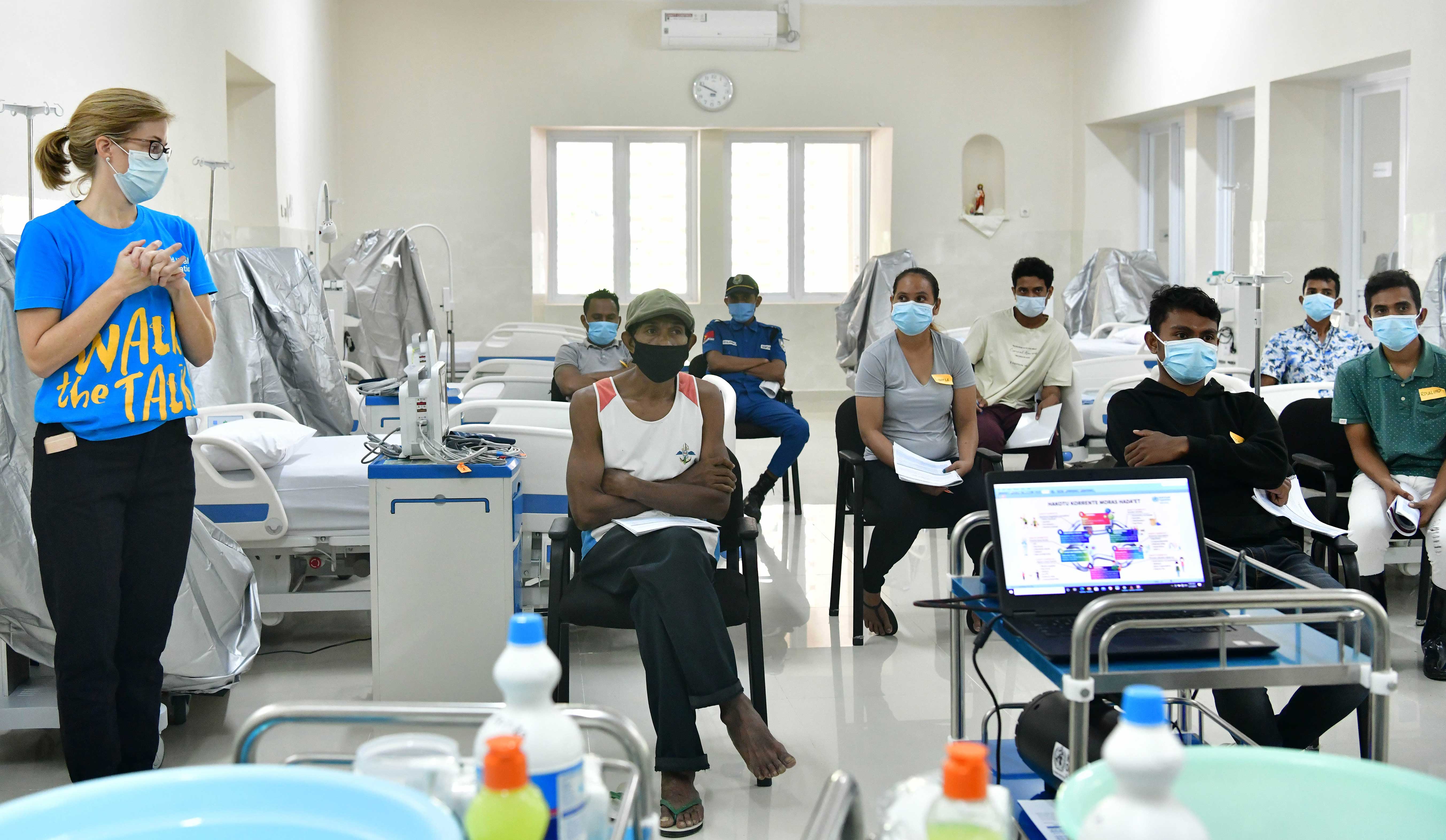The World Health Organization has been working with the Ministry of Health of Timor-Leste to build strong, effective and resilient health systems to respond to the pandemic. A key partner in this initiative is the European Union (EU).
With a generous grant of nearly 3 million USD grant, spanning 20 months, the EU is helping mount an all-inclusive pandemic response and strengthen capacities to test, detect, and monitor COVID-19 cases. The EU grant is also supporting initiatives to reduce morbidity and mortality, including from other health issues, and timely availability of technical experts and essential medical supplies such as the personal protective equipment for COVID-19 response.
“The technical and logistical comparative advantage of WHO coupled with the funding support of partners, specially EU, has facilitated Timor-Leste’s response to the pandemic, including the surge caused by the ‘Delta’ wave in recent months,” said Dr Arvind Mathur, WHO Representative to Timor-Leste.
The WHO-EU partnership has helped train over 150 health professionals in the areas of critical care management and infection prevention and control.

© Nalda
“The world is facing unprecedented health, social and economic shocks from COVID-19. The European Union is pleased to join forces with the World Health Organization as a key part of Team Europe’s efforts to address the impact of the COVID-19 pandemic in Timor-Leste. The EU’s partnership with the WHO will support the Ministry of Health to scale up public health efforts and better protect people,” said Andrew Jacobs, Ambassador of the European Union to Timor-Leste.
The EU support also aims at enhancing COVID-19 preventive measures, strengthening capacity of the national laboratory, and provide new diagnostics equipment and medicines, the EU Ambassador said.
Acknowledging the WHO-EU support, Endang Soares Da Silva, Executive Director of the National Health Laboratory, said they helped recruit 25 health professionals to support Ministry of Health boost COVID-19 surveillance across all municipalities, including Dili, and provided over 40,000 test kits.”
The WHO-EU support was critical in scaling up testing capacities, especially during the surge triggered by the Delta variant in July fueled surge across the country.
Supported by EU, WHO through the International Organization for Migration (IOM) trained Border Agencies in – Bobonaro, Covalima and Special Administrative Region Authority of Oé-Cusse Ambeno (RAEOA) to monitor and manage immigration flows. This opportunity was also used to raise awareness among local communities about COVID-19 and support the Border Agency with community surveillance.

© IOM
Continuing to scale up capacities, WHO is focusing on critical care / referral facilities at the sub-national level. With the EU grant, High Dependency Units (HDUs) are being planned in all referral hospitals. WHO has supported Ministry of Health conduct an assessment of critical care gaps of intensive care experts at Suai and Maliana Referral Hospitals. Additional medicines and equipment are being provided to develop these sites as high quality and safe critical care facilities. This will also include a systematic program of competency building for health workers and support staff.
The over 3 million USD EU grant has been in two parts - EU-WHO partnership of 2 million USD and EU-ECHO grant 1.2 million USD.
